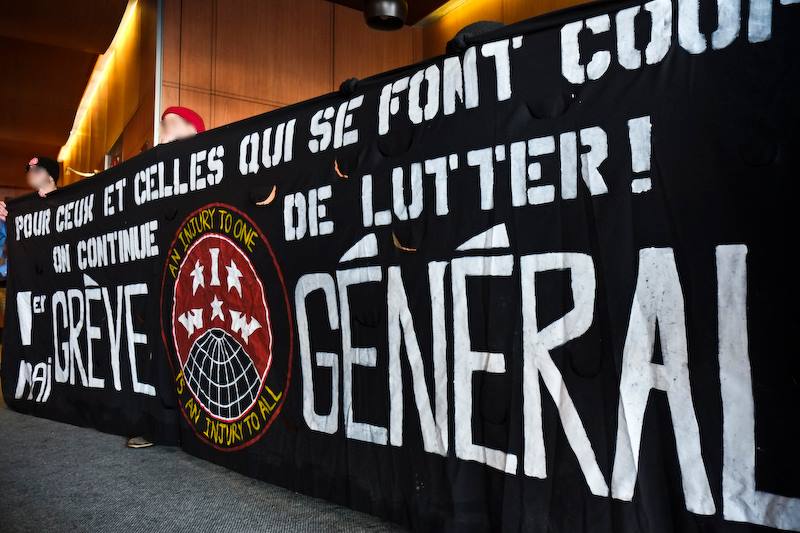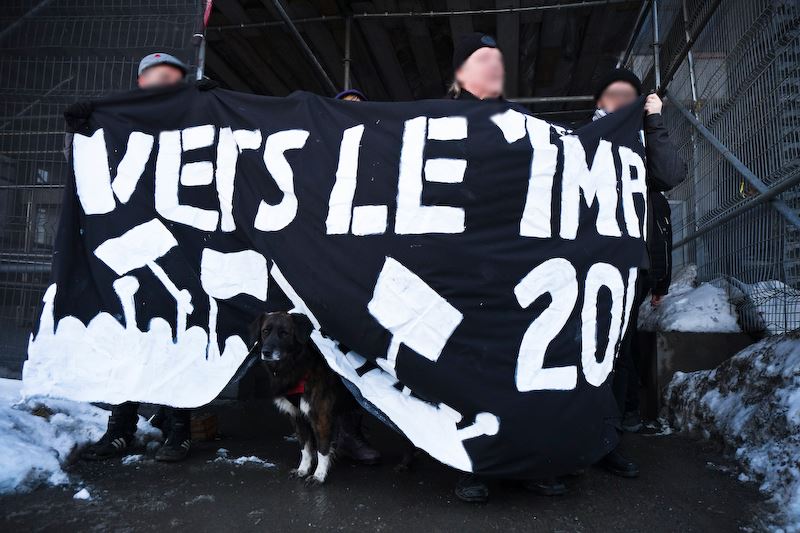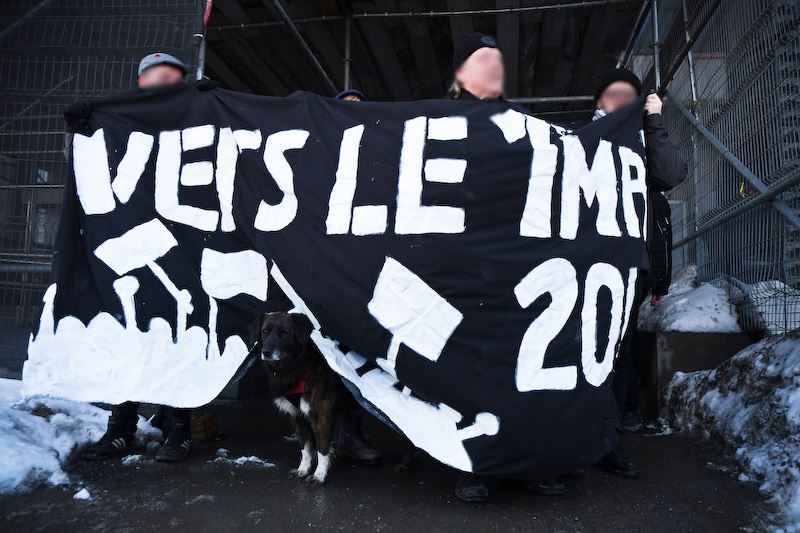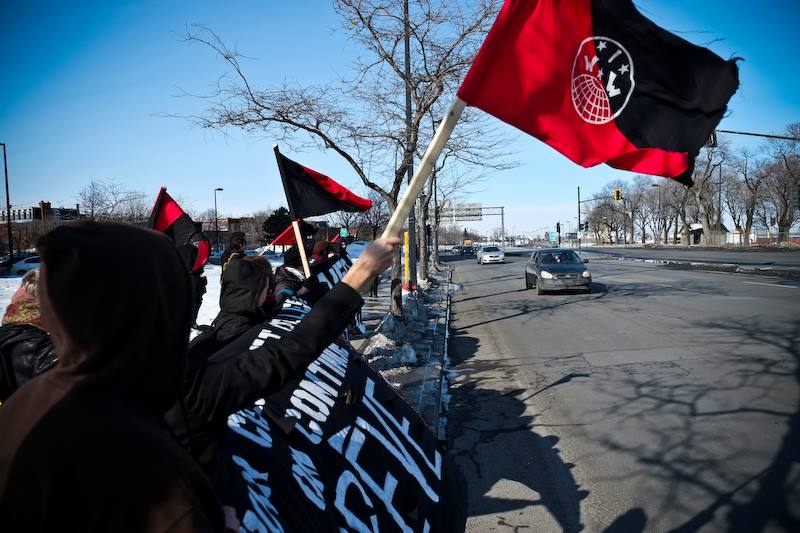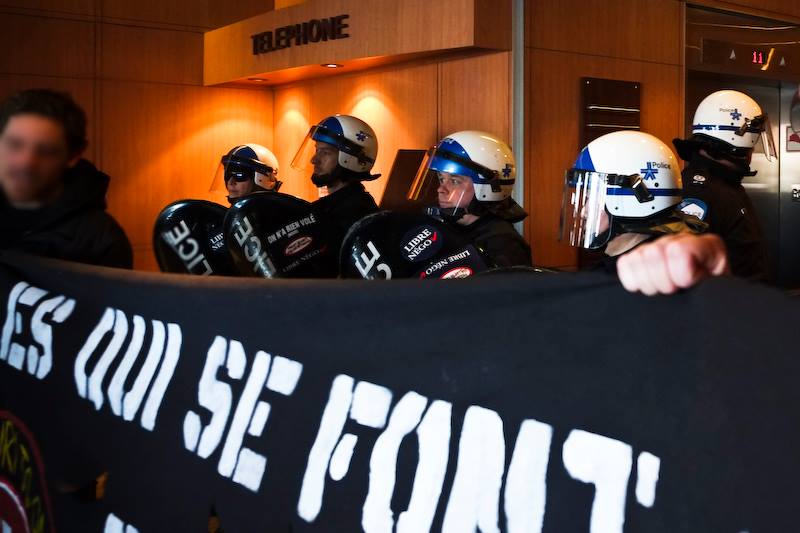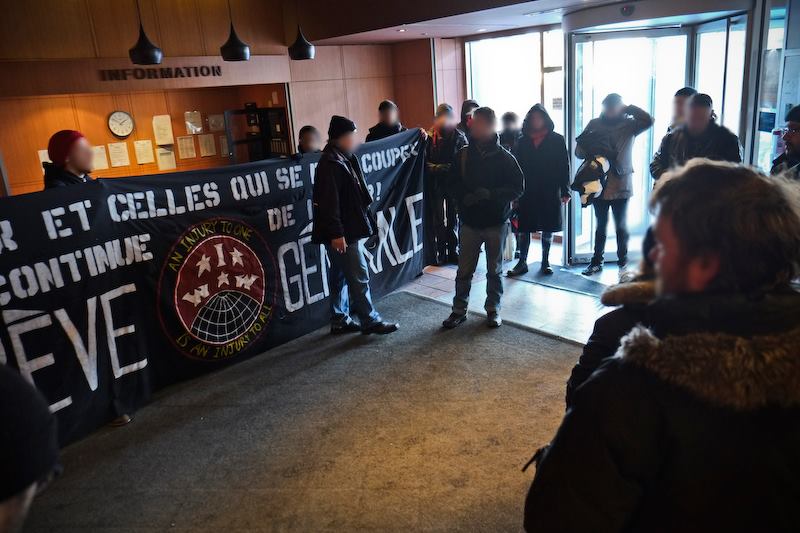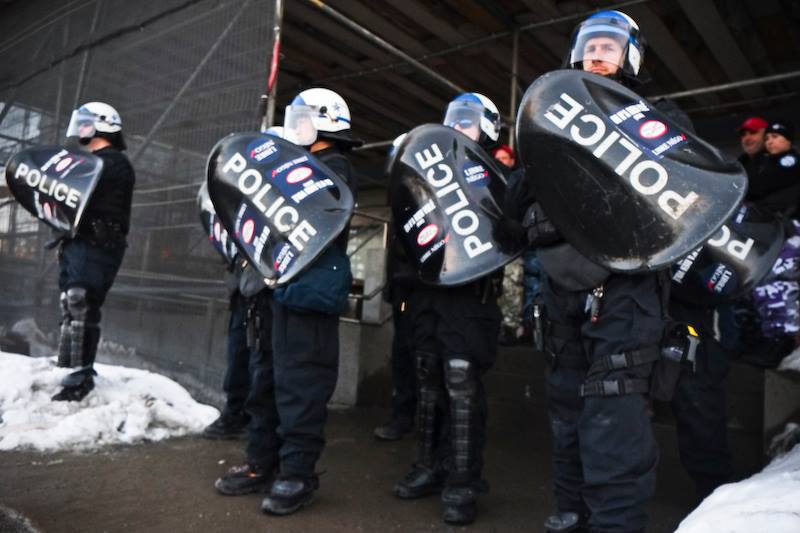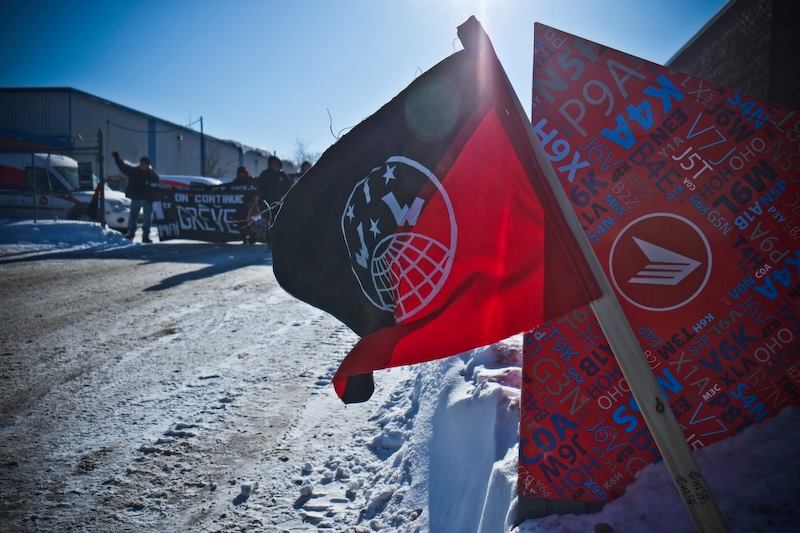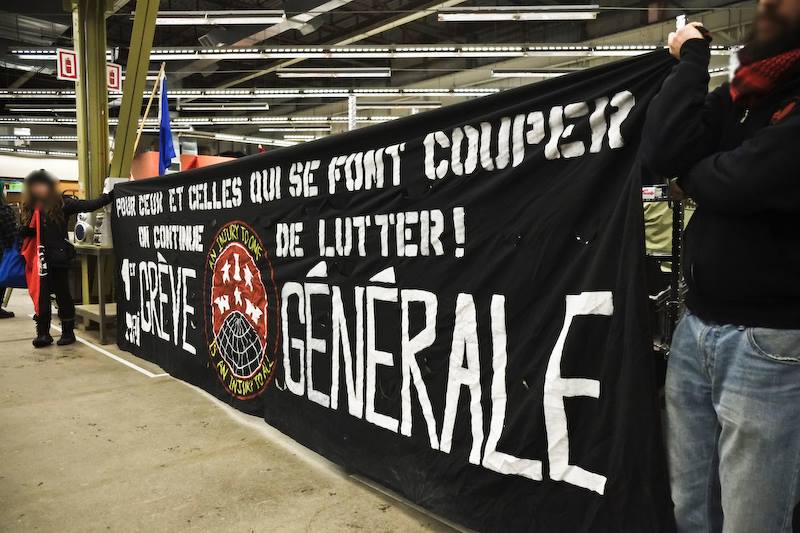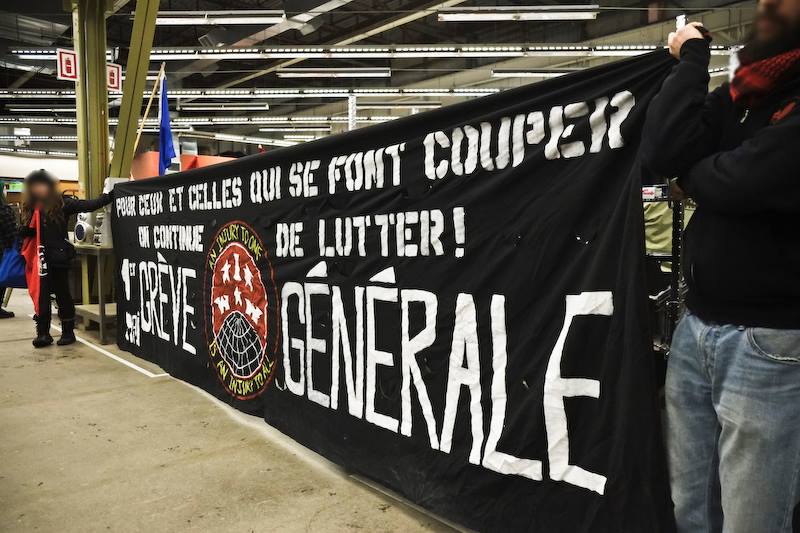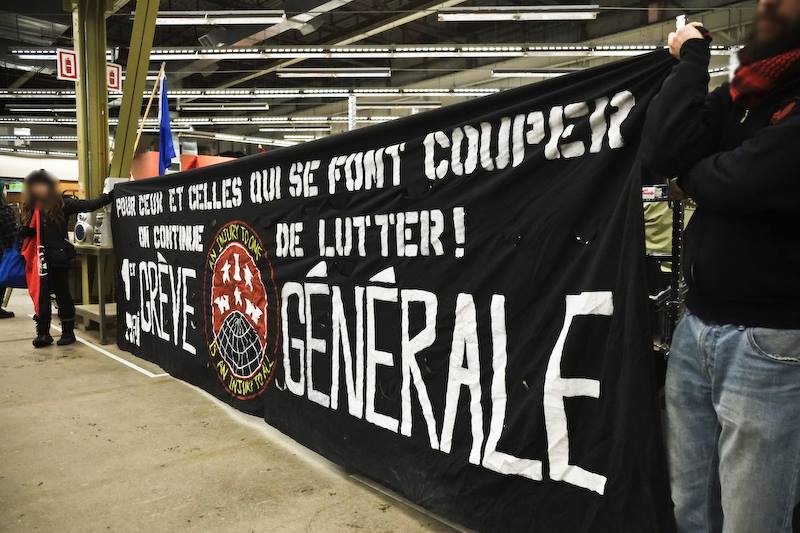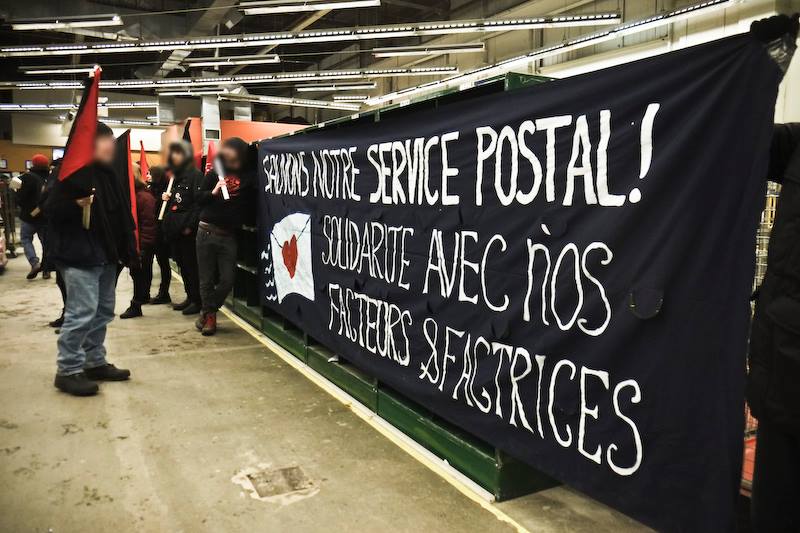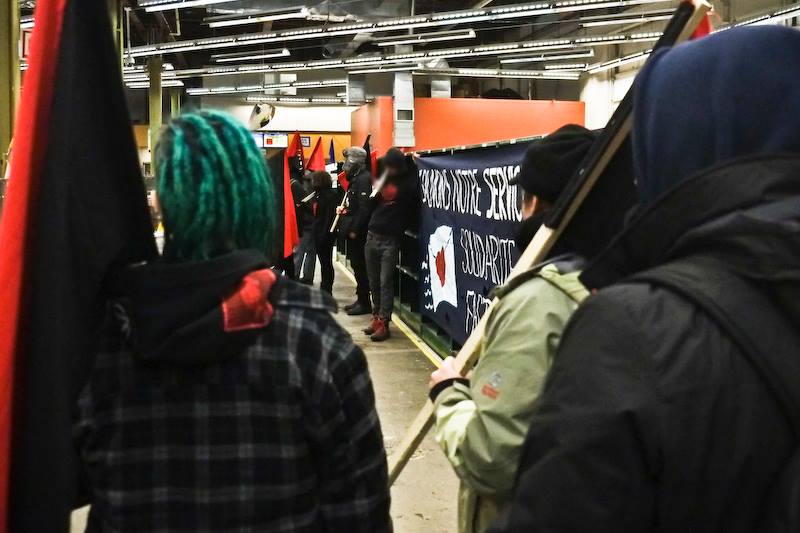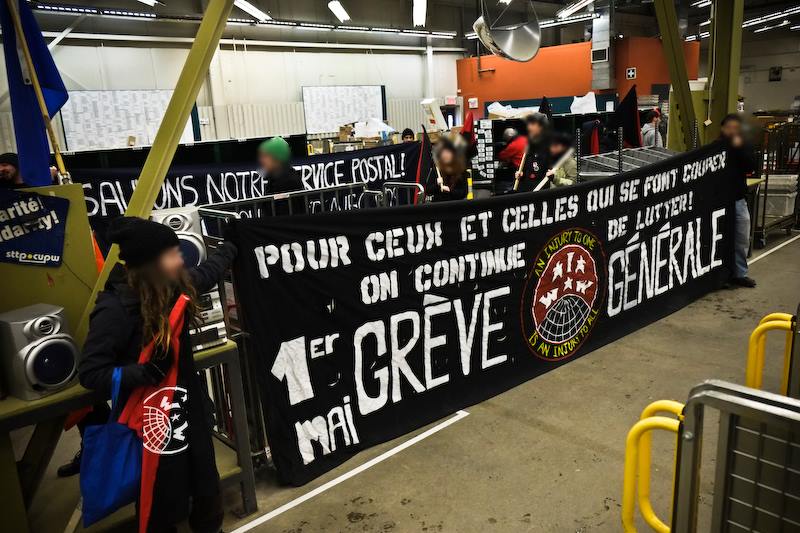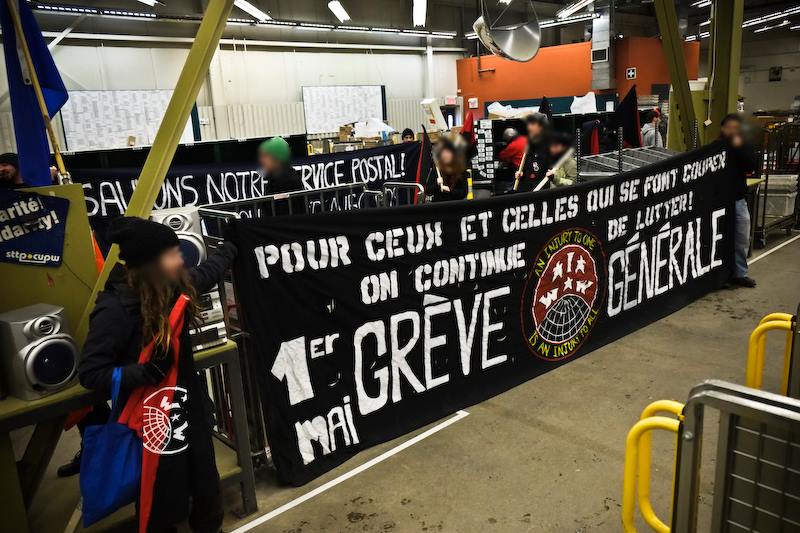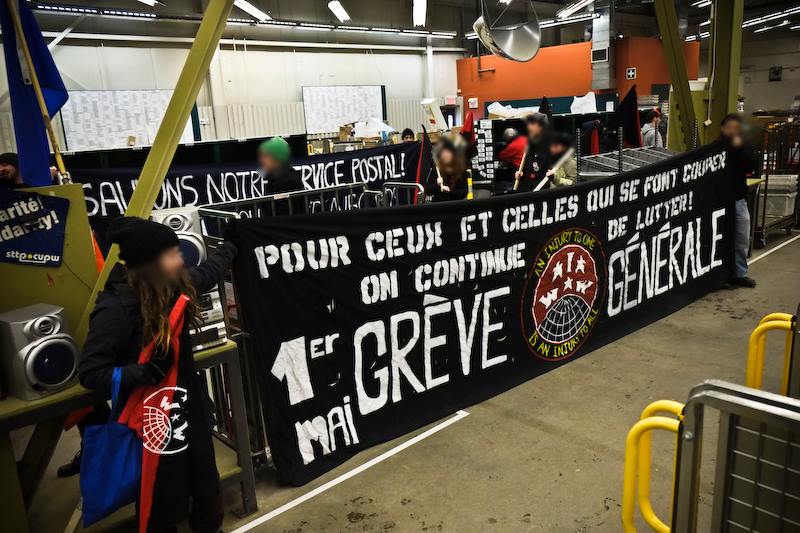Panorama of past struggles and future Gaspésie
1909- Everywhere in Gaspésie, fishing is conducted by foreign companies of & rsquo; Jersey, with the head Charles Robin, Collas and Co. Charles Robin is by far, the worst employers ; Indeed it puts up the "Robin system" : it ensures loyalty forced the fisherman to the retailer. To do this , s & rsquo; he wants to pay his debt accumulated during the & rsquo; winter in the general store run by the same trader, the fisherman can not see a solution : increase the amount of cod caught the next season. However, as is Robin decides the price of products and sockets, repayment is, every season, far from complete.
September 1909, fishermen learn that merchants set the price of cod quintal 3,50$ so that & rsquo; they expected 5 piastres. The situation is clear : we must act collectively in & rsquo; interest of everyone. It is with in fear, but raised fist, fishermen begin their claims on the fourth day of September. Starting from small villages near Rivière-au-Renard, the population began a march that leads the up & rsquo; the place where traders located ,with the intention of ending more & rsquo; d & rsquo a century; operating.
Following the & rsquo; history is predictable, Merchant appeal to the armed forces to ensure their safety, Punishment is implemented, there will be death, wounded, imprisonment among fishermen and claims will be rejected. However, several years later, fishermen will be organized into cooperatives to break the monopoly in place and will become available as the direct influence of traders. The revolt of the fishermen was the first step towards their emancipation from unscrupulous employers. Through this collective movement, fishermen n & rsquo; not learned that & rsquo; to demand better terms from their bosses, but especially, they understood that & rsquo; they had s & rsquo; organize to be able to pass d & rsquo; them.
1957- Best known recently highlighted due to its 60th anniversary : the strike of miners in Gaspésie Murdochville . The main cause of the strike was the refusal of employers & rsquo; affiliation of workers and ourières a more combative union versus the company union and Catholic whom he was affiliated-the-art. The strike was also heavily repressed and no direct gain was obtained by strikers. Two d & rsquo; them died during the conflict, about 500 were dismissed and replaced by scabs. However, recognizes aujourd & rsquo; hui this uprising, in the reign of Duplessis, was the trigger many other social movements. He forced the implementation of some reforms towards the & rsquo; partial improvement of working conditions and above, to the right of workers to choose the union of their choice instead of & rsquo; a system of representation of men and women workers. This system of representation, often set up by employers, indeed favored a permanent peace between the two parties. Despite this victory, this union culture inherited from the Catholic unions still persists.
So, behind a holiday destination image, Gaspésie, through its history since colonization, is d & rsquo theater; major battles between productive forces vs. the owners of capital and means of production. Of course, this relationship of domination of the latter on the first is always d & rsquo; news.
Speaking holiday destination, seasonal work related to the & rsquo; tourism industry here is a prime economic sector. Small traders, in the field of food e.g., must enjoy the summer windfall to accumulate the necessary capital to keep afloat their business and their rate of consumption in the & rsquo; year, while the employee hopes to accumulate enough & rsquo; hours to collect his unemployment to his layoff once the season or, if he or she is a student-e, to try & rsquo; accumulate the necessary to survive a school year. So, the seasonal-eras employees must produce intensively during the summer and it, despite the weak received salary. The shopkeeper will say then have to offer small salaries during the & rsquo; was to garner sufficient economies and low wages remains the & rsquo; year, to take up & rsquo; in the next season.
This is what m & rsquo; leads to speak of & rsquo; first difficulty in the field of & rsquo; organization and claim. C & rsquo; is that & rsquo; it seems difficult, in this context, to demand better working conditions without being accused of s & rsquo; take "small businesses that sustain the & rsquo; local economy". The pretext of "economic insecurity" of small businesses seems to justify Gaspé, the eyes of many, precarious workers, workers and students with Gaspésie-nes. So, people working d & rsquo; hard in the kitchen, dining rooms, cafes, various shops for tourists to feel es received as king and queen, forever play the role of disposable economic support and cheap serving patrons and tourists.
Another difficulty d & rsquo; here in the same field towards the fact that in this environment where everyone knows, conflict situations seem to be avoided at all costs, for fear that & rsquo; they affect social relationships outside work and that the names of the persons concerned do not become synonymous with "trouble maker" and so they lead to some exclusion from the labor market, problem less present in the & rsquo; anonymity of large urban centers.
A third difficulty is the short-term nature of the season in which these jobs abound. Cultural change is long to perform and requires constant involvement of many people. Many of these workers n & rsquo; is that passage, they and they leave behind them and the same working conditions that & rsquo; they arrive, thinking that anyway it n & rsquo; is only temporary. The winter season would be a good time to s & rsquo; organize those who inherit this precarious situation in & rsquo; year.
Besides this, sing here often promise better days thanks to the & rsquo; arrival of big industry : Pulp (Gaspésia), cement (McInnis cement in Port-Daniel), oil (Pétrolia), the industry & rsquo; wind (LM windpower)etc. These industrial giants, in collaboration with the & rsquo; State finance, are as the safeguard for the region. "They would bring jobs and prosperity", so that & rsquo; many times, this type of economic model that generates unemployment and devitalized. Indeed, except in the case of LmWindpower that engages hundreds of workers and workers, these industries advocate the & rsquo; purchase & rsquo; automated equipment and n & rsquo; brings and some jobs that will disappear as soon as the & rsquo; business will suffer the jolts d & rsquo; any economic crisis on Wall Street or d & rsquo; administrative decisions taken far d & rsquo; here. So, they will leave behind people without income and polluting ruins. Short, it seems to me that & rsquo; work organization by and for workers in the & rsquo; optical d & rsquo; an improvement of all the quality of life and all would probably be greater than a distribution of work by d & rsquo leaders, businesses and d & rsquo; state, deciding to produce any and n & rsquo; anything, provided that & rsquo; there is a profit to be drawn for each other and for their campaign promises to create jobs seem to be held, the risk of & rsquo; d & rsquo add, other social and environmental scars in the region.
To conclude, throughout their history, people d & rsquo; here have endured d & rsquo; intolerable treatment by d & rsquo; economic and political elites, as the sea that & rsquo; at the bottom of the mine through the & rsquo; factory. On the other hand, l & rsquo; popular history also shows us that when it's time to stick together among peers to improve our conditions, passion, l & rsquo; organization and & rsquo; action are waiting for you. A long work remains to deconstruct the prejudices that divide the working population, especially for those without jobs, or between permanent es and seasonal workers (unemployed and seasonal es chômeuseuses). Also, with a new "chapter" of the d & rsquo group The Pack extreme right in Gaspésie, the issue of racism and fascism becomes a priority, without forgetting the struggles against sexism, l & rsquo; homophobia, Aboriginal struggles etc.. The SITT-IWW account here very few members currently, but its development in the area seems to me very relevant and even urgent. So, s & rsquo; there are people interested to come "salter" in the corner, embarrass you not!



